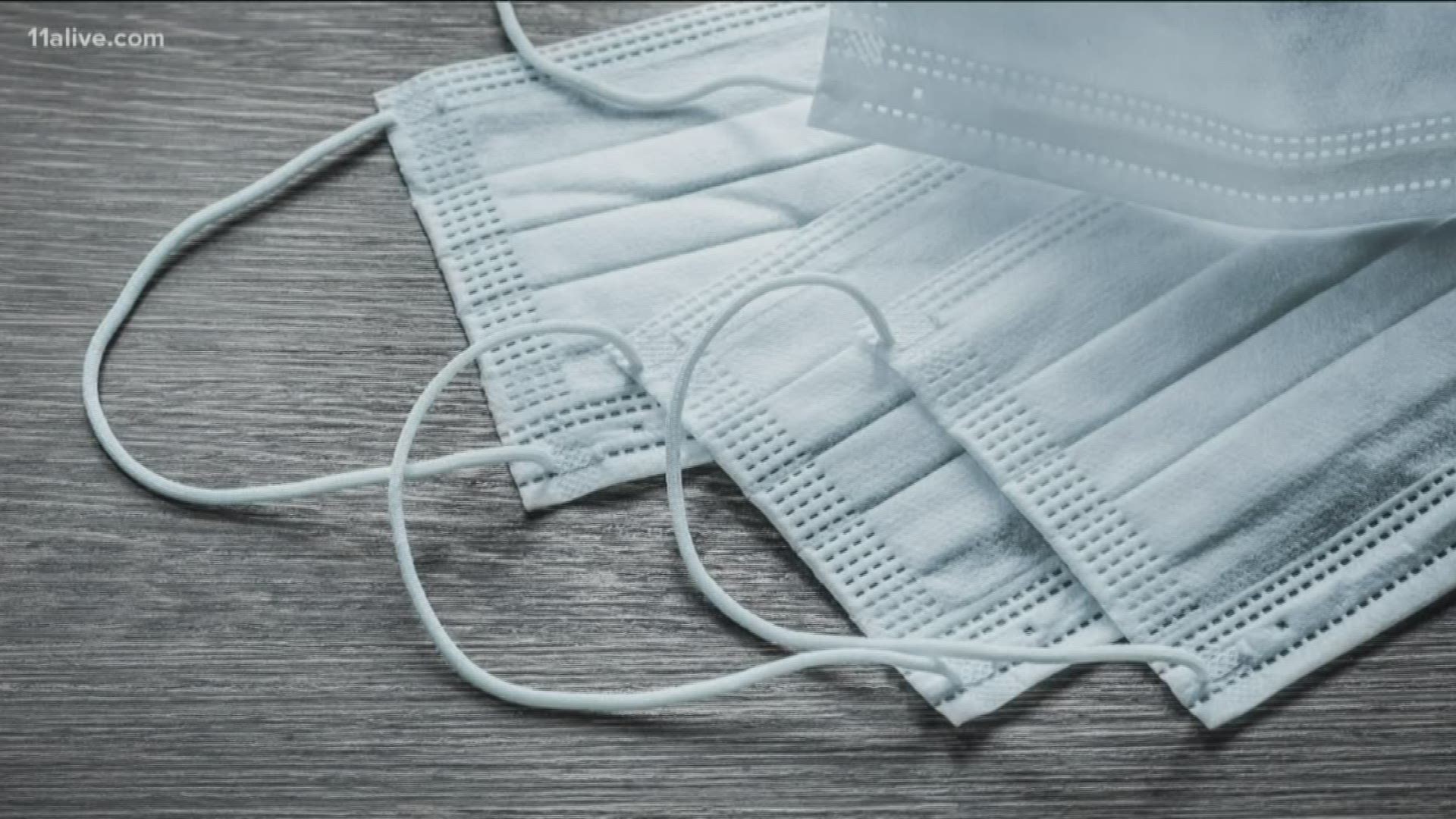ATLANTA — N-95 masks are the preferred mask for healthcare workers battling COVID-19. Nationwide though, there is a shortage of the masks. And that's leading to stories of healthcare workers re-using masks or simply going without.
Tutu Capers is doing its part to help. The group is better known for making tutus and superhero capes over the past eight years for Children's Healthcare of Atlanta patients.
"We make around 2,000 a year. We drop them at Scottish Rite, Egelston, and their pediatric care center and they hand them out to the kids," the group's organizer Barbara Hudson Mock said.
She added that the goal is to make the children feel better at a time when they're in the hospital.
In the past week though, the group re-branded for the time being as Tutu Capers and Mask Makers.
"We have washers, dryers, ironers, sewers and there are about 30 people," Hudson Mock said when describing her team.
They're now making masks around the clock for healthcare workers at hospitals from Atlanta to Athens. So far, they have sent out 2,000 masks and are close to finishing hundreds more.
"Here is one finished with elastic," Hudson Mock said during a video chat with 11Alive Friday while holding up one of the masks. "It has a pocket opening on the inside so they can slide a filter inside it if they need to."
She added that they're only making masks for healthcare workers. They have received requests from other people looking for masks, but want to make sure those at the front of the COVID-19 fight are taken care of first.
Working from the comfort of their own homes to social distance, Tutu Capers and Mask Makers drop supplies on each other's front doorsteps as the masks go through the assembly process. Recently someone donated a large amount of fabric, but elastic is the item the group is most in need of.
"Elastic is like gold in this country," Hudson Mock said. "You can't get it. We need it for the ear attachments."
She added that anyone wanting to donate supplies can contact her group through its Facebook page. An online fundraiser has also been set-up.
On the Tutu Capers and Mask Makers page, are directions for people wanting to make the same style masks to donate to hospitals, or for their personal use. The items needed include fabric, elastic or some type of tie, and thread. As a professional seamstress, Hudson Mock uses a sewing machine, but she said the directions are simple and a needle can get the job done too.
On Friday President Trump announced a federal change of face for the public's use of masks during the COVID-19 pandemic.
"The CDC is recommending the use of non-medical cloth face covering as an additional voluntary public health measure. It is voluntary, you don't have to do it," Trump said.
He said the change is voluntary and added he wouldn't most likely not wear a mask himself. The masks being recommended for the public could be cloth and purchased online or made at home, according to the president.
The change comes days after an interview with CDC Director Dr. Robert Redfield on the NPR News station WABE's podcast "Did You Wash Your Hands?" was published online.
"A significant number of individuals that are infected actually remain asymptomatic. That may be as many as 25 percent," Redfield told WABE.
Meaning people could be transmitting the virus, without knowing they're even infected themselves.
At the beginning of the COVID-19 pandemic, the CDC only recommended masks for healthcare workers and those diagnosed with the virus or showing symptoms.
Before President Trump announced the change, Emory University infectious disease expert Dr. Carlos del Rio on Wednesday discussed the idea of everyone wearing masks.
He stressed N-95 masks needed to be reserved for hospitals but added if the public wore cotton masks it couldn't hurt.
"Do I know that it is going to work? I honestly don't know, but you know let's do it just because, it's one more thing we could do potentially against this," del Rio said.
Handwashing, cleaning frequently touched objects and social distancing need to remain priorities del Rio added, even when using a mask. His concern is masks will give people a false sense of security.
"I worry that sometimes when you're wearing a mask, you're bringing your hands to your face to make sure this mask is in the right positioning and you're moving the mask around," he mentioned.
On YouTube, there is a rabbit hole of videos for people looking to make their own masks.
Most only require items many people have around the house.
Northeast Georgia Medical Center gives a detailed tutorial on making a 4-ply pleated mask:
A 2017 video shows how to make a dust mask out of a t-shirt:
One of the easiest options requires only a couple of elastic hair-ties and a handkerchief:
MORE HEADLINES

